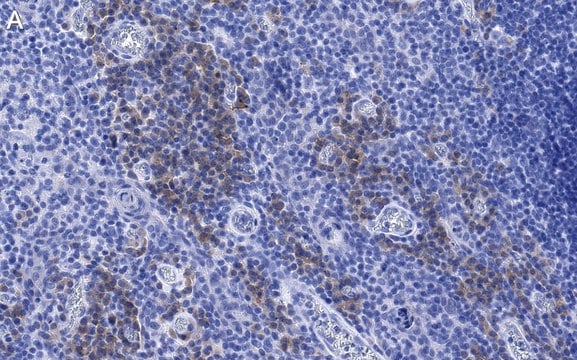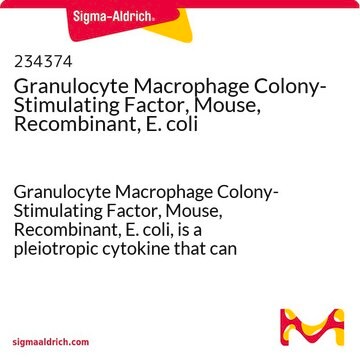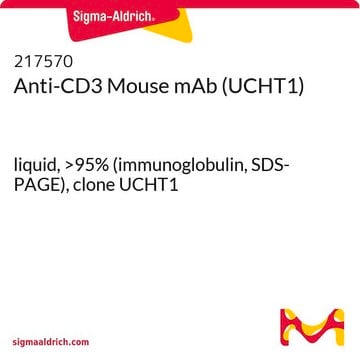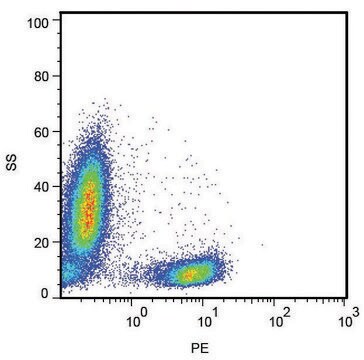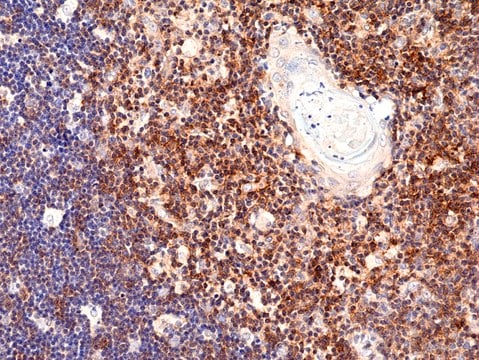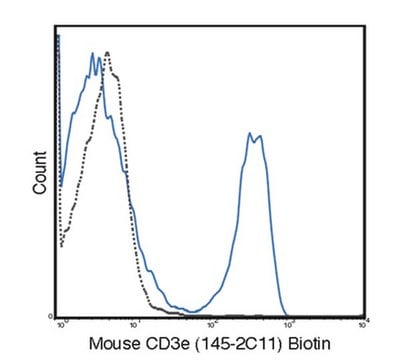MABF2089
Anti-CD28 Antibody, clone 37.51
clone 37.51, from hamster(Syrian)
Sinónimos:
T-cell-specific surface glycoprotein CD28
About This Item
Productos recomendados
biological source
hamster (Syrian)
antibody form
purified antibody
antibody product type
primary antibodies
clone
37.51, monoclonal
species reactivity
mouse
packaging
antibody small pack of 25 μg
technique(s)
flow cytometry: suitable
immunoprecipitation (IP): suitable
western blot: suitable
NCBI accession no.
UniProt accession no.
target post-translational modification
unmodified
Gene Information
mouse ... Cd28(12487)
General description
Specificity
Immunogen
Application
Flow Cytometry Analysis: A representative lot detected CD28 in Flow Cytometry applications (Gross, J.A., et. al. (1992). J Immunol. 149(2):380-8; Krummel, M.F., et. al. (1995). J Exp Med. 1;182(2):459-65).
Immunoprecipitation Analysis: A representative lot detected CD28 in Immunoprecipitation applications (Gross, J.A., et. al. (1992). J Immunol. 149(2):380-8).
Western Blotting Analysis: A representative lot detected CD28 in Western Blotting applications (Gross, J.A., et. al. (1992). J Immunol. 149(2):380-8
Quality
Flow Cytometry Analysis: 1 µg of this antibody detected CD28 in 1X10E6 EL-4 T lymphoma cells.
Target description
Physical form
Other Notes
¿No encuentra el producto adecuado?
Pruebe nuestro Herramienta de selección de productos.
Storage Class
12 - Non Combustible Liquids
wgk_germany
WGK 2
flash_point_f
Not applicable
flash_point_c
Not applicable
Certificados de análisis (COA)
Busque Certificados de análisis (COA) introduciendo el número de lote del producto. Los números de lote se encuentran en la etiqueta del producto después de las palabras «Lot» o «Batch»
¿Ya tiene este producto?
Encuentre la documentación para los productos que ha comprado recientemente en la Biblioteca de documentos.
Nuestro equipo de científicos tiene experiencia en todas las áreas de investigación: Ciencias de la vida, Ciencia de los materiales, Síntesis química, Cromatografía, Analítica y muchas otras.
Póngase en contacto con el Servicio técnico

